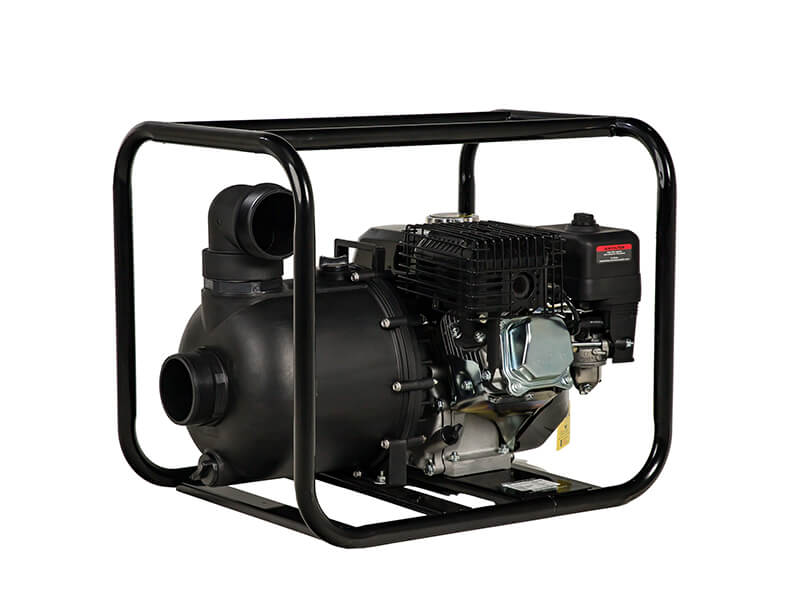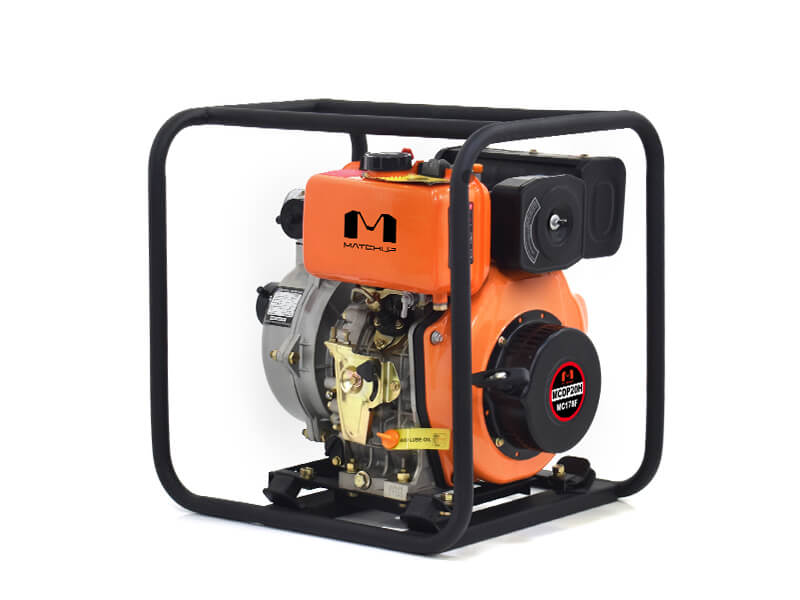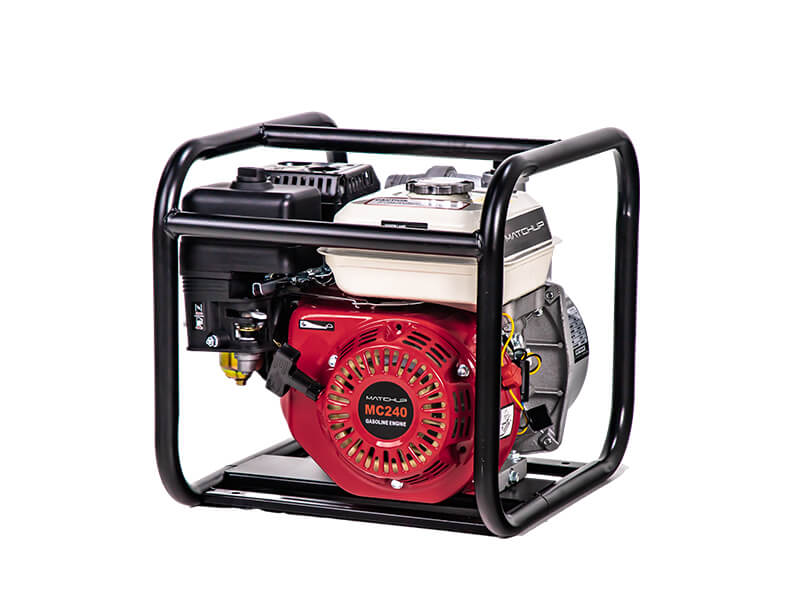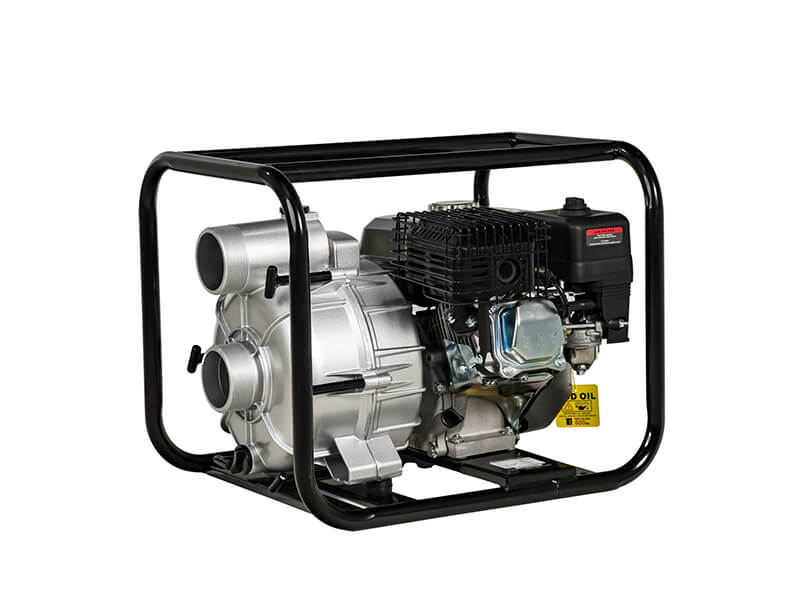
water pumps
As a trusted manufacturer and supplier, we offer a wide range of water pumps for residential, agricultural, industrial, and emergency use. Made from high-quality materials such as stainless steel, cast iron, and durable plastic, our products can handle a variety of water sources and working conditions.
OEM/ODM water pumps manufacturers
water pumps manufacturers and suppliers
To efficiently move water, MATCHUP offers a wide range of high-performance water pumps for a variety of applications. Whether you need a pump for domestic water supply, industrial use, construction sites, or agricultural irrigation, MATCHUP can provide reliable and durable solutions. As a leading OEM manufacturer in China, we specialize in manufacturing water pumps that combine powerful performance and energy-saving benefits to ensure long-lasting operation even in harsh environments.

professional water pumps manufacturer
trusted water pumps manufacturing company
MATCHUP offers quality control, affordable wholesale prices, and professional assistance to help you select the ideal pump for your needs. Our water pumps are designed to improve energy efficiency and reduce long-term maintenance costs, and are designed with the following concepts:
Reputable manufacturers and industry expertise
Choosing a water pump requires careful consideration of the manufacturer’s quality record and industry knowledge. MATCHUP has many years of experience in the water pump industry and is a well-known brand known for engineering excellence. We can design and manufacture reliable, high-performance water pumps that can withstand the rigors of a variety of applications.
Certifications and approvals
Verify the pump manufacturer’s certifications and approvals to ensure its quality and reliability. We have pumps that meet industry-recognized standards such as CE, RoHS, or various market access certifications. These certifications prove that the pumps have been extensively tested and meet safety, performance, and reliability requirements.
Service and support
Evaluate the manufacturer’s reputation for customer service, such as availability, response time, and expertise. Ask about the manufacturer’s warranty, spare parts availability, and maintenance requirements. A reputable pump supplier should provide comprehensive support, including installation advice, troubleshooting assistance, and preventive maintenance recommendations. A pump manufacturer with a strong support system will give you peace of mind and minimize downtime if any issues arise.
Customer customization requirements
Consumers in different regions and markets may have special requirements for unique features due to product appearance and preferences. We offer a variety of types and models to meet a variety of needs from home booster water supply to industrial-scale water delivery.
Water pump applications
Water pumps are vital in a wide range of applications including residential, agricultural, industrial, commercial, municipal and emergency sectors. But their basic function remains the same: to efficiently move water to where it is needed.
Residential applications
Water pumps play a vital role in many household systems, ensuring a supply of clean water for a variety of uses.
- Well water supply: For households with private wells, water pumps are a necessity for drawing water from groundwater sources. These pumps ensure that residents have access to drinking, cooking, and other household water.
- Boosting tap water pressure: In areas where municipal water supply pressure is insufficient, booster pumps help increase water pressure, ensuring a steady flow of water to showers, faucets, and appliances.
- Sump pump drainage: Sump pumps are used in basements to prevent flooding by draining excess water. These pumps are essential in areas prone to heavy rains or groundwater seepage, helping to keep homes dry and prevent flooding.
- Pools and fountains: Water pumps are essential for the operation of decorative fountains and pools, ensuring that water is constantly circulated and filtered.
- Garden irrigation: Water pumps are used in garden irrigation systems to ensure that plants receive the amount of water they need. They can be used to draw water from rainwater tanks, wells, or reservoirs, efficiently supplying water to irrigation systems.
Agricultural applications
Water pumps are essential in agriculture, supporting applications such as irrigation systems, livestock watering, and aquaculture.
- Irrigation systems: Water pumps are the primary irrigation equipment essential to agricultural production. Pumps move water from rivers, lakes, wells, or reservoirs to fields, ensuring that crops receive adequate water, especially in areas where rainfall is insufficient. The number of agricultural water pumps continues to grow steadily due to the expansion of irrigation needs and the increase in droughts.
- Livestock watering: Water pumps are also used to provide clean drinking water to livestock. Whether the water is drawn from a well, river, or other source, these pumps ensure that animals have constant access to fresh water.
- Aquaculture circulation: In fish farming, pumps circulate water in tanks or ponds, providing necessary oxygen and removing waste. Pumps help maintain optimal conditions for fish growth, ensuring that water quality is constantly monitored and improved.
Industrial and commercial applications
Water pumps are an integral part of many industrial and commercial operations, ensuring a continuous supply of water and efficient treatment in a variety of industries.
- Building water supply: Pumps are used in commercial buildings to supply water to bathrooms, kitchens, and HVAC systems. They ensure steady water pressure in large buildings and help deliver water to multiple floors.
- Wastewater treatment: In wastewater treatment plants, pumps are used to move sewage and wastewater through various stages of filtration and purification.
- Manufacturing processes: Many industrial manufacturing processes require water for cooling, cleaning, and chemical mixing. Pumps help circulate water through cooling towers, washing systems, and other mechanical equipment. Ensuring smooth operation of production lines.
- Fire protection systems: Water pumps are an essential part of fire protection systems. They ensure a continuous supply of water to sprinkler systems, fire hoses, and other firefighting equipment, especially in large buildings or industrial facilities.
- Mining industry: Water pumps are essential in mining operations, used to clean mines and supply water during ore processing, smelting, and rolling stages.
Municipal applications
Water pumps are vital to municipal systems, helping to ensure communities have access to clean water and efficient waste management systems.
- Drinking water delivery: Pumps are an essential component of municipal water systems. They draw water from reservoirs or groundwater sources, convey and pressurize it, and then deliver it to homes for drinking, washing, and cooking.
- Wastewater treatment: Pumps are used to purify small-scale water sources such as ponds or drainage pits and are also used for large-scale sewage treatment and municipal wastewater discharge.
Emergency and other uses
Pumps play a vital role in emergency situations and special applications that require rapid drainage or transfer of water.
- Flood area drainage: In flood-prone areas, pumps are used to drain areas affected by rising water levels. These pumps help remove standing water from streets, homes, and other buildings, minimizing flood damage and speeding up recovery.
- Construction site drainage: Construction sites, especially those located below the water table, often require dewatering pumps to remove excess groundwater. These pumps help keep sites dry, ensuring safe excavation and construction work without delays.
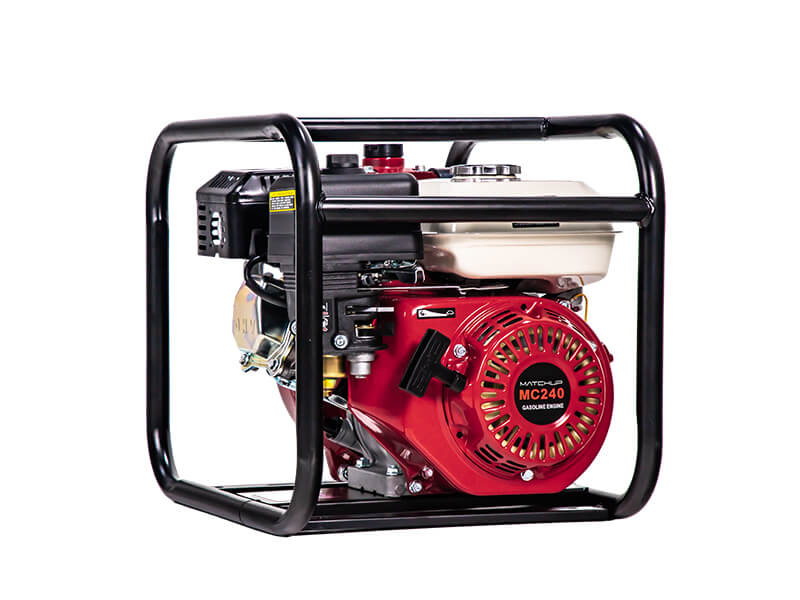
how to choose the right water pump?
Choosing the right water pump is essential to ensuring efficiency, durability, and reliability for any water-using application. Whether you want to irrigate farmland, manage water pressure in your home, or dewater a construction site, choosing a water pump that meets your specific needs can save time, money, and effort. This article outlines the key factors to consider when selecting a water pump and how our company’s diverse range of high-quality solutions can meet your needs.
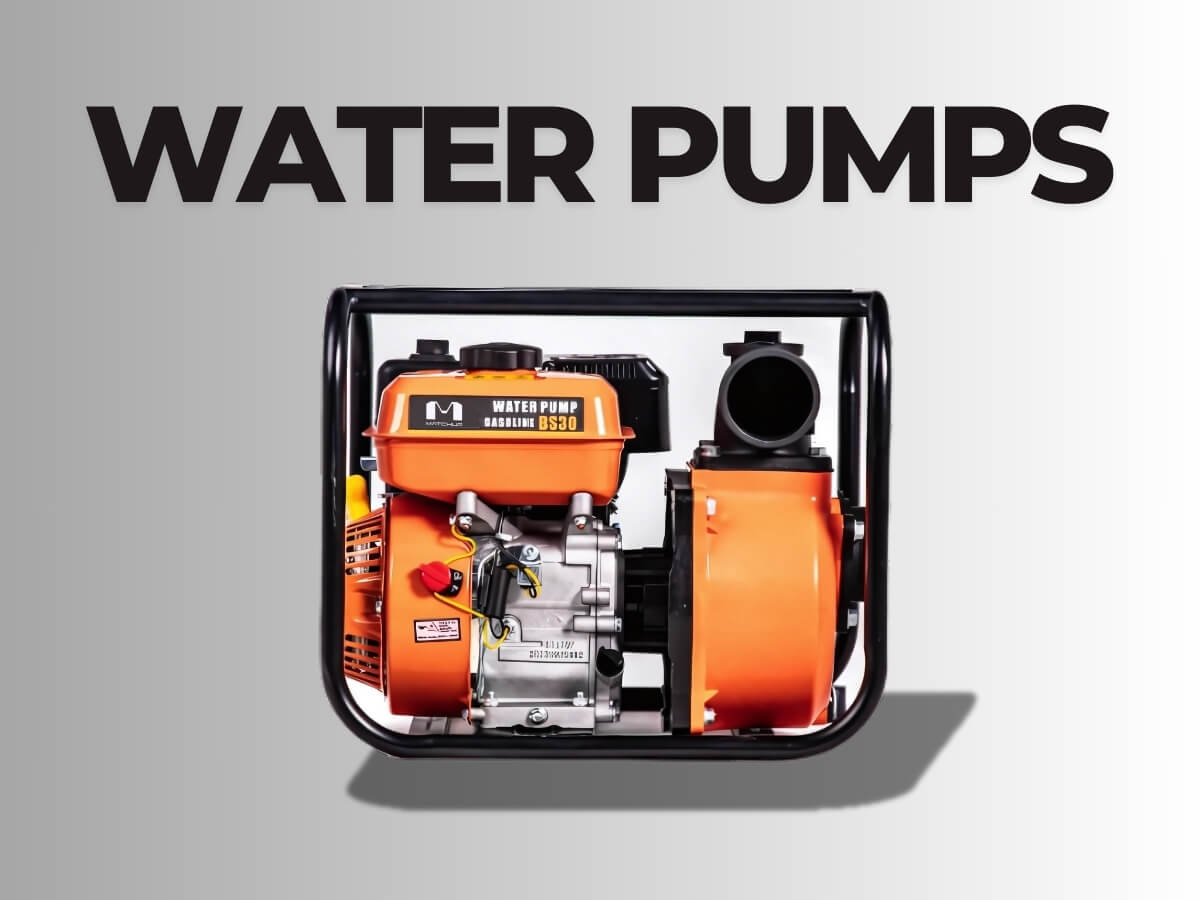
Identify the medium or environment the pump will be used in.
Pumps are designed in a variety of ways to meet different needs, environments, and types of fluids. While centrifugal and positive displacement pumps are the primary types of water that are defined for pumps, there are many subtypes within these categories, and additional classifications exist based on the power source and mounting method.
Define the application
First, identify the purpose of the pump. The application will affect the type, size, power source, and materials required for the pump. Common applications include:
- Residential: boosting, garden irrigation, sewage drainage.
- Agricultural: irrigation systems, livestock watering, aquaculture.
- Industrial/commercial: HVAC systems, wastewater treatment, firefighting.
- Emergency: flood drainage, portable water supply, disaster response.
Analyze the source and type of water
The characteristics of the water being pumped are important, and a pump design is selected that is appropriate for the physical properties of the water and the environmental conditions.
- Clear water: Clear water centrifugal pumps use the rotational energy of the impeller to increase the velocity of the water and convert it into pressure. This design is ideal for moving large volumes of clean or slightly dirty water with relatively low viscosity.
- Sewage: Trash pumps are used to handle water that contains larger solids or debris. They have wide openings and impellers designed to prevent clogging.
- Depth: Deep wells require submersible or jet pumps. Submersible pumps are designed to operate completely submerged in water and do not require priming.
- Temperature: High-temperature water may require a pump with heat-resistant components.
Analyze your pump power source
Evaluate your energy options, considering both the availability of power and the cost of operation. These factors determine their portability, efficiency, and suitability for a particular environment.
- Electric pumps: The most common type of pump for home and industrial use. They require a connection to a power source and are generally quiet and efficient. Suitable for use in areas with an adequate supply of electricity.
- Engine-driven pumps: Use a gasoline or diesel engine. These pumps are ideal for use in remote areas or emergency situations where electricity is scarce.
- Solar pumps: Utilize photovoltaic panels to power the pump. Suitable for off-grid agricultural irrigation or water supply in rural areas. Environmentally friendly and cost-effective in sunny, off-grid areas.
Determine your pumping needs
After that, evaluate your pumping needs. Determine the amount of water you need to pump, or “pump capacity,” and the pressure you need, or pump head.
Flow rate is the volume of water pumped in a specific period. It is usually measured in gallons per minute (GPM) or liters per minute (LPM). Flow rate is one of the most important factors to consider when selecting a pump because it directly affects the overall productivity and delivery capacity of the system. Knowing flow rate ensures that the pump can keep up with the demand and avoids overworking or wasting energy.
Pressure is the force that pushes water through the system and is usually measured in pounds per square inch (PSI), feet, or meters of head. The head is the vertical distance the water must move and can be used to calculate the pressure required to move the water. TDH is the total height and resistance that the pump must overcome to move the water. It includes:
- Vertical head: The distance from the water source to the pump or discharge point.
- Friction loss: The resistance caused by pipes, valves, and fittings.
- Required pressure: Any outlet pressure required for spraying, filtering, or pressurization.
Accurately calculating the total discharge height (TDH) is critical to selecting a pump that will operate efficiently under specific conditions.
The horsepower requirement of a pump depends on the amount of water being delivered, the required pressure, and the efficiency of the pump. Horsepower is usually measured in horsepower (HP) or kilowatts (kW). Knowing the horsepower requirement is critical to ensuring that the pump motor can handle the load without overloading it.
Efficiency
Pump efficiency refers to how effectively a pump converts input energy into moving water. An efficient pump requires less energy to achieve the desired flow and pressure, making it more cost-effective to operate. Efficiency is usually expressed as a percentage, with the higher the percentage, the better the performance.
Some pumps have variable speed drives that can adjust the output power according to demand, thus significantly reducing energy consumption. They are popular around the world, especially in the field of domestic and industrial booster pumps.
While a more efficient pump may cost more upfront, it will save energy and reduce maintenance over time. However, for low-power or intermittently used pumps, energy efficiency may not be the primary consideration.
Cost and budget
Consider the initial cost of the pump and see if it is within your budget. To calculate the total cost over the life of the pump, consider long-term expenses such as maintenance, repairs, and energy consumption. A less expensive pump may require frequent repairs or replacement, while a well-built pump will provide many years of service with minimal downtime.
Materials and corrosion resistance
The materials a pump is made of are critical to its lifespan and reliability. Make sure the pump material is compatible with the water or liquid type:
- Cast iron: Durable, suitable for clear water applications.
- Stainless steel: Corrosion resistant, suitable for acidic, saltwater or potable water.
- Plastics/polymers: Lightweight and chemically resistant, suitable for certain agricultural or chemical uses.
The right materials ensure longer life and consistent performance. Helps extend the life of your pump and reduce the risk of premature failure.
Noise levels and space constraints
Before selecting the type and configuration of pump, always consider the installation environment. Make sure the pump you choose meets all relevant environmental standards and regulations. Noise-sensitive areas (e.g., residential, office) may require a quieter electric pump or a canned pump. Tight spaces require a compact design with flexible mounting options.
Maintenance and service life
It is essential to understand the maintenance requirements of your pump. This includes lubricating parts, replacing seals, and cleaning filters and impellers. Some pumps require only minimal maintenance, while others may require more frequent maintenance. A durable and well-maintained pump can last for many years.
Conclusion
Water pumps are essential to modern life, silently supporting critical operations in homes, farms, factories, municipalities, and emergency response scenarios. From supplying drinking water and irrigating crops to driving industrial processes and controlling floods, water pumps ensure that water always flows to where it is most needed. They play an integral role in maintaining the daily operation and safety of numerous industries.
As a professional water pump manufacturer in China, our water pumps are carefully designed for durability, efficiency, and reliability, helping customers around the world confidently meet water management challenges. We invite you to explore our wide range of high-quality water pumps and contact our team of experts.
about water pumps, people also ask:
What does "self-priming" mean in a water pump?
A self-priming pump can expel air from the suction line and automatically start pumping without manual priming. This feature is very useful in applications where air may be present in the system.
Can a water pump run dry?
Most pumps should not run dry as this can damage internal components. However, diaphragm pumps and some self-priming pumps can withstand short periods of dry running.
How water pumps work?
At the most basic level, pumps have one key role: to move water from one location to another, overcoming resistance. This resistance generally takes three main forms: gravity when lifting water vertically, pressure differentials when pushing water into a pressurized system, and friction losses as water flows through pipes and fittings. Pumps provide the mechanical energy needed to overcome these natural resistances, allowing water to flow where it is needed most.
All pumps, regardless of their specific design, operate on the principle of creating a pressure differential within a sealed system. This pressure differential is the driving force for water movement:
- Creating low pressure at the inlet: A pump creates a low-pressure area (partial vacuum) at the suction inlet. This pressure drop draws water into the pump, just as the negative pressure created when drinking from a straw pulls the liquid upward.
- Creating high pressure at the outlet: At the same time, a pump creates a high-pressure area at the discharge point. This increase in pressure pushes the water outward and through the connected system.
- Continuous flow maintenance: By continuously maintaining this pressure differential, the pump ensures a continuous flow of water during operation.
Depending on the type of pump, this pressure differential is created by various mechanical means. Here is an introduction to how centrifugal pumps work:
Centrifugal pumps are the most commonly used type of pump in many industries. The key component of a centrifugal pump is the impeller, which is a rotating disk with blades that transfers energy to the water. As the impeller rotates, it creates centrifugal force that pushes water outward from the center of the impeller. Water enters the pump through the suction port and flows toward the impeller, where it gains velocity and is then pushed into the volute. The shape of the volute helps convert the kinetic energy of the water into pressure energy.
The key to the operation of a centrifugal pump is the radial acceleration of the water. As the water is pushed outward by the impeller blades, its velocity increases, which also increases its pressure. The water flows out of the pump’s discharge port at a higher pressure and velocity, ready to be transported to its destination.
What is a water pump?
Water pumps are essential components for moving and distributing water in a variety of applications. Their primary function is to move water from one location to another, often having to overcome changes in altitude or pressure to maintain a steady and reliable water supply.
A water pump is a complex system consisting of several key components, each of which plays a vital role in ensuring efficient water delivery. The core components of a water pump include the impeller, motor, shaft, seals and bearings, pump casing, and control system.
- Impeller: The impeller is the heart of the pump. It is a rotating component. The design and speed of the impeller directly affect the flow and pressure output of the pump.
- Motor: An electric or engine-driven motor rotates the impeller, causing the water to flow. The size and output of the motor directly determine the performance of the pump. The size of the motor must be matched to the requirements of the pump to ensure efficient operation.
- Shaft: The shaft connects the motor and impeller, transferring the rotational energy of the motor to the impeller. The shaft is usually made of metal and is designed to withstand rotational forces without bending or wearing out.
- Seals and bearings: These components reduce friction between moving parts and prevent leaks, ensuring reliable and smooth operation of the pump.
- Pump casing: The pump casing houses all the internal components of the pump, such as the impeller, motor, and pump shaft. The pump casing ensures that water flows properly into the pump body, through the impeller, and out the outlet.
- Inlet and outlet: Water enters and exits the pump body through these apertures. The size and arrangement of these ports significantly affect the overall flow characteristics of the pump.


